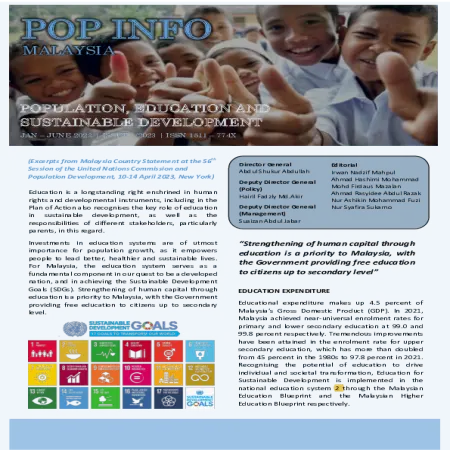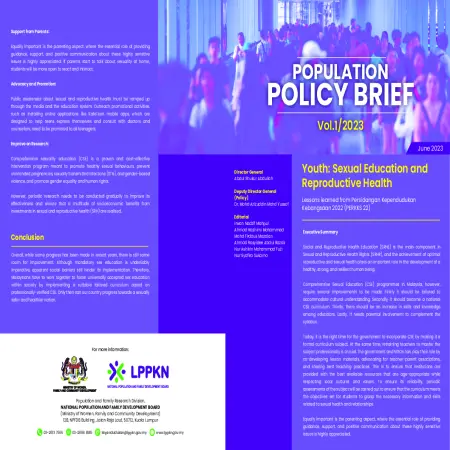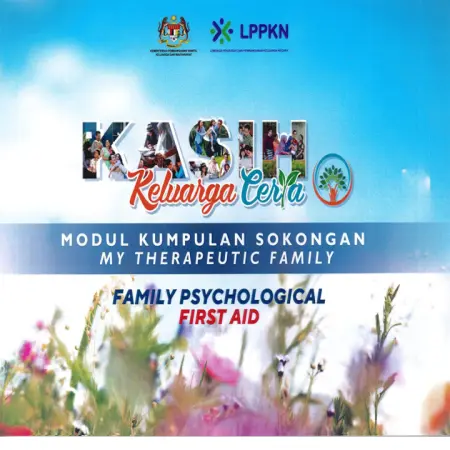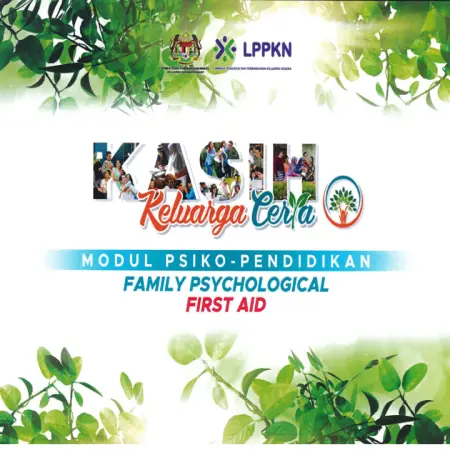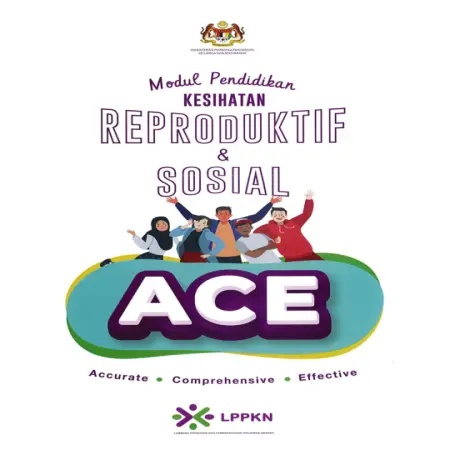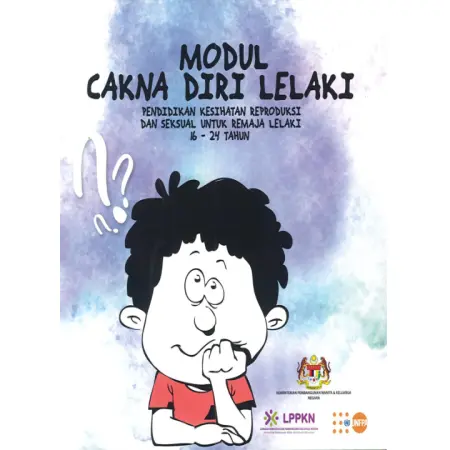Browse by Subject
Results for Search : "100 Philosophy & psychology"
|
|
SDGS and the impact of megatrends on Families: perspectives from Malaysia
Item Type: Conference or Workshop Item
Editor:
Year: 00/05/2024
Abstract: 57th Commissions on Population and Development (CPD57): Assessing the status of implementation of the Programmed of Action of the International Conference on Population and Development and its contribution to the follow-up and review of the 2030 Agenda for Sustainable Development during the decade of action and delivery for sustainable development. Strengthening Malaysian Families in era of megatrends, National Population and Family Development Board Malaysia (NPFBD) had LPPKN Family Centre, Nur Sejahtera Clinic Services, Population and Family Research, Training and education (family), Counseling service and program, online accessibility etc.
|
|
|
|
|
|
Population, education and sustainable developmet
Item Type: Newsletter
Editor:
Year: 00/06/2023
Abstract: Education is a longstanding right enshrined in human rights and developmental instruments, including in the Plan of Action also recognises the key role of education in sustainable development, as well as the responsibilities of different stakeholders, particularly parents, in this regard.
Strengthening of human capital through education is a priority to Malaysia, with the Government providing free education to citizens up to secondary level. Malaysia is also undertaking efforts to ensure that the education system is robust, resilient and fit for the future.
|
|
|
|
|
|
Population Policy Brief: Youth Sexual Education and Reproductive Health
Item Type: Act & Policy
Editor:
Year: 00/06/2023
Abstract: Comprehensive sexuality education (CSE) is a proven and cost-effective intervention program meant to promote healthy sexual behaviours, prevent unintended pregnancies, sexually transmitted infections (STIs), and gender-based violence, and promote gender equality and human rights. Therefore Malaysian have to work together to foster universally accepted sex education within society by implementing a suitable tailored curriculum based on professionally-verified CSE.
|
|
|
|
|
|
Modul My Therapeutic Family: Family Psychological First Aid
Item Type: Module
Editor:
Year: 00/01/2023
Abstract: INTRODUCTION:-
KASIH Keluarga Ceria Program is a comprehensive initiative aimed to bolster the family institution in Malaysia, which is a cornerstone of national well-being. This program comprises two modules, namely:
i. Psychoeducation Module
ii. Support Group "My Therapeutic Family" Module
These modules were based on the Family Psychological First Aid (F-PFA) model, jointly developed by NPFDB and Universiti Pendidikan Sultan Idris (UPSI). The model integrated fundamental family dynamics, functional family systems, and Psychological First Aid principles recognized by the World Health Organization (WHO).
The Support Group "My Therapeutic Family" Module complements the Psychoeducation Module by focusing on maintenance, particularly in the post-intervention phase, addressing crisis management within the family unit.
The objectives of this program are:
1. Enhance parents' awareness regarding mental health and adaptive skills;
2. Educate parents with knowledge of Family Psychological First Aid (F-PFA);
3. Empower parents with referral skills for psychological assistance;
4. Establish support groups platform for parents; and
5. Forge intelligent collaborative network between NGOs, agencies, and referral experts.
|
|
|
|
|
|
Modul Psiko-Pendidikan "Family Psychological First Aid"
Item Type: Module
Editor:
Year: 00/01/2023
Abstract: KASIH Keluarga Ceria Program is a comprehensive initiative aimed to bolster the family institution in Malaysia, which is a cornerstone of national well-being. This program comprises two modules, namely:
i. Psychoeducation Module
ii. Support Group "My Therapeutic Family" Module
These modules were based on the Family Psychological First Aid (F-PFA) model, jointly developed by LPPKN and Universiti Pendidikan Sultan Idris (UPSI). The model integrates fundamental family dynamics, functional family systems, and Psychological First Aid principles recognized by the World Health Organization (WHO).
The Psychoeducation Module serves to impart knowledge on F-PFA concepts and skills necessary during the preparation and intervention phases of managing crises within the family unit. The module encompasses mental health screening, psychosocial intervention, and referral skill. Families, armed with F-PFA knowledge and skills, gain the capacity to adeptly respond during family crisis.
The objectives of this program are:
1. Enhance parents' awareness regarding mental health and adaptive skills;
2. Educate parents with knowledge of Family Psychological First Aid (F-PFA);
3. Empower parents with referral skills for psychological assistance;
4. Establish support groups platform for parents; and
5. Forge intelligent collaborative network between NGOs, agencies, and referral experts.
|
|
|
|
|
|
Modul Pendidikan Kesihatan Reproduktif dan Sosial ACE (Accurate, Comprehensive, Effective)
Item Type: Module
Editor:
Year: 00/01/2022
Abstract: LPPKN published an intervention module called Module ACE – Accurate, Comprehensive and Effective on 2021 as a product from The Youth Intervention Study: Best Practices for Youth Intervention Programs that was carried out in 2016. This module is suitable to be used for adolescents age 10 to 24 years old.
The ACE module covers comprehensive reproductive health and sexuality education which includes legislation on sexual violence, gender equality and human trafficking. The module has been implemented on targeted groups consist of youths and peer educators, and proven to expand their knowledge on reproductive health. The activities from the module are delivered using pedagogy method that encourage on two-way interaction and responsiveness.
|
|
|
|
|
|
The well-being of adolescents in divorced families
Item Type: Thesis
Editor:
Year: 00/00/2020
Abstract: This study aimed to explore an in-depth understanding on the wellness of teenagers in divorced families. This qualitative study used the phenomenological approach to explore the experience of ten teenagers living with single mothers after the divorce of their parents. Participants in this research are 10 teenagers age between 16 to 18 years’ old who lived with their mothers after their parents' divorce. The duration of their parents' divorce during the data collection was in the range of one to ten years. Data were collected using semi-structured interviews and document analysis by social media. Data were analysed using NVIVO12 software. Nine themes and 26 sub-themes emerged from this study. Three main themes and ten subthemes answered the first research question on, what is the meaning of wellness among teenagers in divorced families? Another three more theme and eight sub themes answered the second research question on, what are the perception of teenagers towards wellness in divorced families? The remaining three themes and eight sub themes answered the third research question on, how does divorce changes the wellness in teenager’s life? In conclusion, teenagers’ in this study accepted the changes that occurred as a result of parental divorce. The implications of this study is viewed from three aspects; 1) practical implications for professions such as counselors, 2) theoretical implications for future research, and 3) implications in the field of education for the wellness of the community. The information extracted from the findings of this study can help counselors to understand better on the actual living experience of teenagers in divorced families. The study also helps counsellors to understand how some teenagers manage to live a successful life and fulfilling all the wellness of life in spite of living in divorced families. As this study only focus on teenagers living with their mother after their parents’ divorce, it recommends future researchers to consider exploring areas of wellness among teenagers in joint custody parents or teenagers living with their single father after the parental divorce.
|
|
|
|
|
|
Fathers' bonding and self-esteem among trainees in the drugs treatment and rehabilitation center in Melaka
Item Type: Thesis
Editor:
Year: 00/05/2018
Abstract: The paper discusses a survey study that examined the father’s bonding and its relationship with self-esteem. A total of 97 trainees in Cure and Care Rehabilitation Centre (CCRC), Tiang Dua, Melaka who participated in the study had responded to questionnaires on aspects of fathers’ bonding and their self-esteem. Analysis of correlation between fathers’ bonding and self-esteem were performed. Frequency count, percentage and mean were also calculated to examine the parenting involvement among fathers. The Pearson r Value, the significant and t-Test were used to the objectives of the study. Results indicated that 65% have lower bonding with their father’s whereas only 35% have had a high father’s bonding. The t-test also showed there is non significant correlation in the index of father’s bonding with self-esteem (Sig=.402 and r value= -0.086). However, the respondents felt that their fathers were unfriendly and had little communication with them. The correlation between fathers’ bonding and their self-esteem was rather low. This implies that the roles of father in parenting need to be examined further.
|
|
|
|
|
|
Modul Cakna Diri Lelaki Pendidikan Kesihatan Reproduksi dan Seksual Untuk Remaja Lelaki Berumur 16-24 Tahun
Item Type: Module
Editor:
Year: 00/01/2018
Abstract: The Sexual and Reproductive Health Module for boys and young men age 16 to 24 years was developed to address sexual and reproductive health as well as social issues for boys and young men. It is also aim to create awareness on the importance of reproductive health and social education as well as gender equality for future well-being. This module is divided into two (2) main target groups i.e. general adolescents (Module A) and most-at-risk adolescents (Module B). The main components of Module A includes topics on adolescent growth, developmental, health, psychosocial - 3R (Respect, Relationship and Responsibility), laws and regulations, drugs and substance abuse. Module B covers topics on risky social behaviors, risky sexual behaviors and teen pregnancy. This module is developed as an interactive form using various learning methods such as role play, sketches, group work and discussions to attract participation of boys and young men.
|
|
|
|
|
|
Parenting style and risk level of drug abuse among students in USIM
Item Type: Thesis
Editor:
Year: 00/00/2018
Abstract: Drug issue is a worldwide problem being faced by many countries and creates a complicated social problem including drug abuse among teenagers. This requires an aggressive corrective action by related agencies because it is getting rampant and has yet to be resolved. Nevertheless, society cannot always depend upon the related agencies to solve this problem. The family institution is believed to also have a role to prevent or reduce the drug abuse rate in teenagers. Looking on this aspect, the parenting style is important in shaping good character in behavior, interest, goals, and beliefs of the teenagers. A total of 121 Tamhidi students in USIM involved as respondents for the present study. Each respondent was given a questionnaire with 60 questions, represented by three sections which are - A: Demography; B: DAST-20; and C: Parenting Style. Results revealed that gender has a significant difference (p<0.05) on sociodemographic characteristic. However, no significant difference (p>0.05) were observed on the age, parent marital status, and family household. On the other part of the study, significant difference (p<0.05) was observed on the parenting style. Authoritarian style of parenting has recorded with a low-risk (46.3%) drug taking by the respondents followed by permissive parenting style (25.0%). The analysis also revealed that respondents with parent who are applying the authoritative parenting style had no-risk of possibility on taking drug (96.7%). In summary, socio-demographic attribute on gender and permissive parenting styles has been associated with high-risk drug abuse among respondents in the present study.
|
|
|
|






